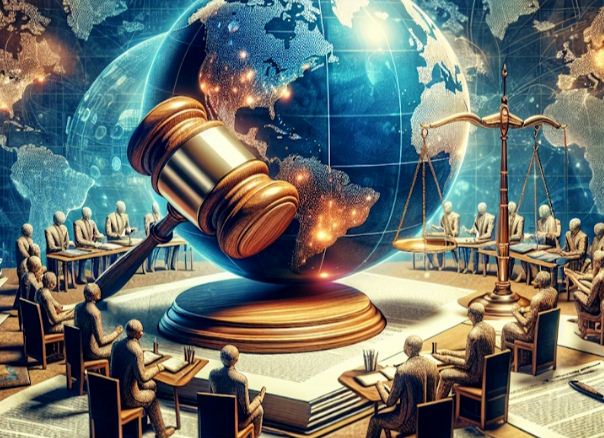
International law, also known as public international law and law of nations, encompasses a set of rules, norms, and standards generally accepted in relations between nations. It establishes guidelines for the practice of stable and organized international relations. This body of law is primarily composed of treaties, agreements between sovereign nations, customary laws, and legal precedents that nations acknowledge and follow.
International law differs from domestic law. While domestic law governs the conduct within a country and its citizens, international law primarily involves sovereign nations and international organizations. Its scope extends to a wide range of matters of national and international importance such as diplomatic relations, war crimes, human rights, global security, international trade and commerce, global environmental issues, and international waters.
One of the primary purposes of international law is to promote peace. This is achieved by providing a framework for states and international organizations to carry out their relationships and activities. International law also aims to foster cooperation among nations, particularly in areas like trade and human rights.
Enforcing international law, however, can be challenging. Unlike domestic laws where there is a clear, established system for enforcing laws and penalties for violations, international law lacks a comprehensive enforcement mechanism. The United Nations, established in 1945, is charged with maintaining international peace and security, but it does not have the power to enforce international law.
The International Court of Justice (ICJ), also known as the World Court, is the primary judicial organ of the United Nations. It settles legal disputes between states according to international law. However, its rulings are only binding on the parties involved in the case, and it does not have the power to enforce its decisions.
Despite these limitations, international law plays a crucial role in maintaining international peace and order. It sets the legal framework within which states operate in relation to each other, promoting a sense of order and predictability. It provides a basis for international cooperation and ensures that global interactions are based on law and justice rather than power or arbitrary decisions.
In conclusion, international law, though complex and challenging to enforce, is crucial in regulating relations among nations. It not only promotes peace and cooperation but also seeks to ensure that global interactions are carried out within a legal framework. As the world becomes more interconnected, the importance of international law can only be expected to grow.
Gozel GUTLYYEWA,
Vice-dean of the faculty of International Law of the International University for the Humanities and Development.





